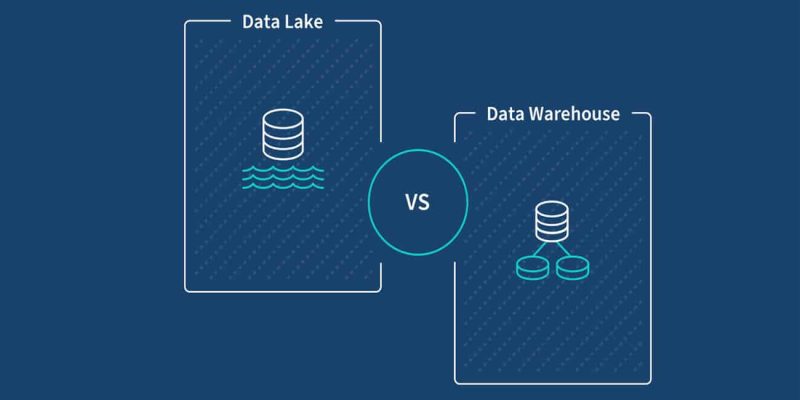Imagine preparing for a grand feast. You walk into two very different kitchens. One is a sprawling pantry where every ingredient—spices, grains, raw vegetables, even exotic imports—is stored in its original form. The other is a polished kitchen where ingredients are prepped, neatly arranged, and ready to cook.
In the world of analytics, the pantry is your data lake—a place where raw, unstructured information resides. The polished kitchen is the data warehouse, where data is cleaned, structured, and organised for immediate use. Both are essential, but the choice between them depends on the kind of “feast” your organisation wants to prepare.
Understanding the Nature of Data Lakes
A data lake is like a vast reservoir where every drop of water—streams, rainfall, underground flows—collects. It doesn’t discriminate; it simply stores everything in its natural form. Similarly, data lakes store a wide range of data, including structured, semi-structured, and unstructured data.
They are handy for organisations that need flexibility. Data scientists and advanced analysts often dive into these reservoirs, exploring raw data for new patterns and experimental models. However, without proper governance, lakes can turn into swamps—chaotic and unusable.
For students exploring a data analyst course, data lakes often represent the experimental playground where creativity meets exploration. Learning to manage them responsibly is as important as learning to extract insights.
The Structured World of Data Warehouses
In contrast, a data warehouse is like a curated museum. Every artefact is labelled, categorised, and displayed in a way that tells a story. Data here is organised into tables and schemas, making it highly efficient for reporting and business intelligence.
Executives and decision-makers prefer warehouses because they can quickly pull insights for dashboards and reports. The structure ensures reliability, but it comes at the cost of flexibility—raw data must be cleaned and transformed before entering.
Institutions offering a Data Analytics Course in Mumbai often emphasise data warehouses as the backbone of decision-making. Learners discover how carefully designed schemas make data reliable, repeatable, and ready for business use.
Cost and Performance Considerations
Choosing between lakes and warehouses often comes down to striking a balance between cost and performance. Storing raw data in a lake is generally cheaper, as it requires less upfront processing. However, querying unstructured data can be slow and resource-intensive.
Warehouses, while more expensive to maintain, provide lightning-fast performance for structured queries. It’s the difference between fishing in a vast open lake, where you may need time and patience, versus ordering a neatly prepared dish from a restaurant menu.
Training through a data analyst course often introduces learners to these trade-offs, teaching them when flexibility matters more than speed and when structure outweighs raw exploration.
Use Cases: When to Choose Which
Data lakes excel when handling large volumes of diverse data—think IoT sensor readings, social media content, or logs from mobile applications. They are ideal for machine learning experiments and advanced analytics, where raw inputs are highly valuable.
Warehouses, however, excel in operational reporting, financial analysis, and regulatory compliance. Their strength lies in delivering accurate, standardised outputs that leaders can act on quickly.
Professional programs, such as a Data Analytics Course in Mumbai, often teach learners to look beyond definitions and evaluate real-world scenarios. By analysing use cases, students learn to recommend the right solution for the business challenge at hand.
Conclusion
The debate between data lakes and data warehouses is not about which is better—it’s about which is better suited for the task. Data lakes offer breadth and flexibility, while data warehouses provide precision and structure. Together, they can even complement one another, forming a hybrid strategy for modern organisations.
For analysts and decision-makers, the real challenge is not in definitions but in making the right choice based on context. By understanding the nature of both, professionals can ensure that their organisation’s “data kitchen” always serves the right dish at the right time.
Business Name: ExcelR- Data Science, Data Analytics, Business Analyst Course Training Mumbai
Address: Unit no. 302, 03rd Floor, Ashok Premises, Old Nagardas Rd, Nicolas Wadi Rd, Mogra Village, Gundavali Gaothan, Andheri E, Mumbai, Maharashtra 400069, Phone: 09108238354, Email: enquiry@excelr.com.











Comments